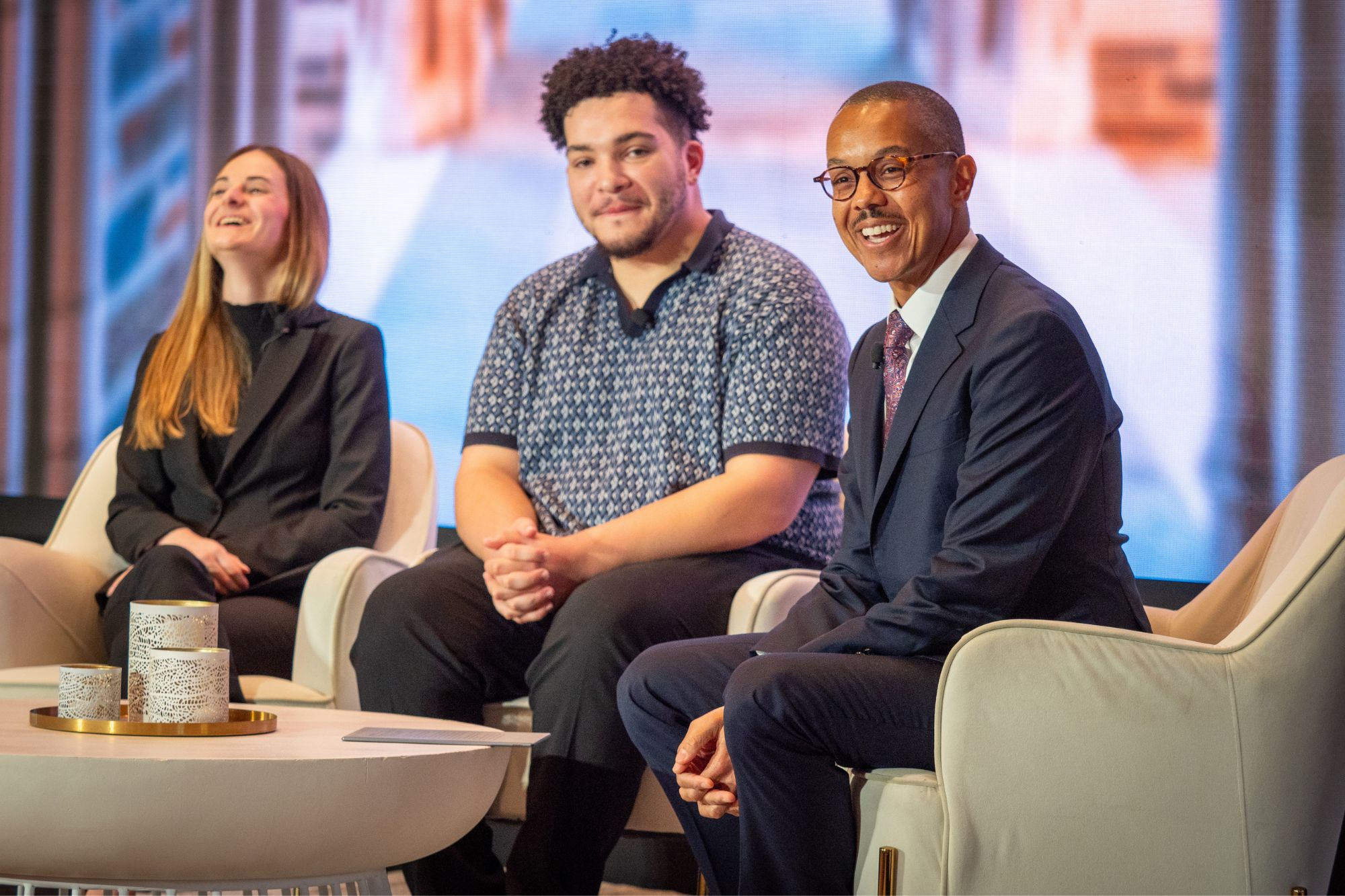Students to Benefit from Historic $100 Million Award
The Duke Endowment gift will support wider access to Duke and greater experiential learning opportunities

Duke University president, Vincent Price, welcomes Charles Lucas to the stage 
Chair of the Board of Trustees of The Duke Endowment, Charles Lucas. announces the gift
The largest single award in the university’s 100-year history, it will expand access to a Duke education; boost support for Duke students, especially those from the Carolinas and Duke graduate students from Historically Black Colleges and Universities and other minority-serving institutions; deepen the university’s community partnerships; and honor Wilhelmina Reuben-Cooke’s legacy by making the building that bears her name a model for 21st century teaching and learning. The late Reuben-Cooke, who graduated from Duke in 1967, was one of the university’s first five Black undergraduates at Duke.
“Throughout our first century, the university and The Duke Endowment have worked together to realize Mr. Duke’s vision for transforming the wisdom and talent and ambitions of students, faculty and staff into a much larger return for society – a significant expansion of human happiness,” said Duke President Vincent E. Price. “Today, as both institutions prepare to mark our centennials, we are delighted to announce and celebrate The Duke Endowment’s $100 million centennial award in support of our vision for Duke University’s second century.”
Gary Bennett, dean of Trinity College of Arts & Sciences, was supported by a Duke Endowment fellowship as a graduate student.
“I’m thrilled that even more students will be able to follow a similar path – thanks to funds The Duke Endowment has designated to support more HBCU grads in pursuing advanced degrees at Duke,” said Bennett.
Bennett also introduced two students, Isaiah Hamilton and Madison Pinckney, who “embody where the greatest impact of this funding will be felt, and that’s among our students and their families,” he said.
Pinckney, a third-year law student who wants to focus her practice on disability rights, said the hands-on experience she obtained while working at several Duke law clinics has provided her and others with valuable experiential learning.

“To be a competitive applicant, as I've learned through my post-grad interviews for the last few months, means having clinic experience and other experiential coursework,” said Pinckney. “I have relied on these experiences in every interview I’ve had for post-graduation employment this year, and it’s helped me move forward and feel confident that I will be able to secure a job in disability rights as I intended to do when I came to school.”
Hamilton said the connections he’s made while at Duke helped him secure a job as a business technology solutions analyst when he graduates.
“Had I not been at Duke, that would have never been a possibility,” said Hamilton. “Being from Elizabeth City, North Carolina, the thought never really occurred to me that I could belong in a place like Duke.”
He added that experiential learning provides a safe space for students to be their authentic selves and dive into what excites them. “It was my experiences outside of the classroom that exposed me to the skill sets that I’m going to be using in this position and helped me network with a lot of people at the firm that helped influence my decision.”


